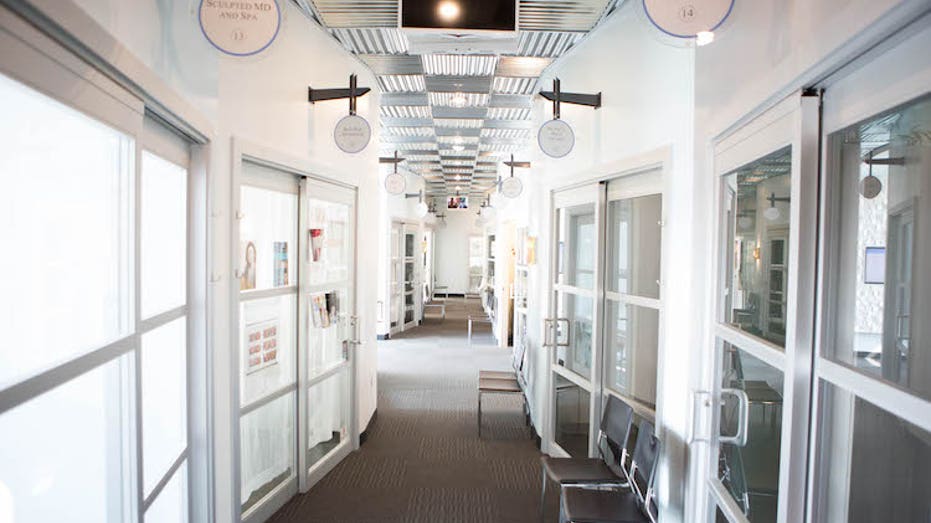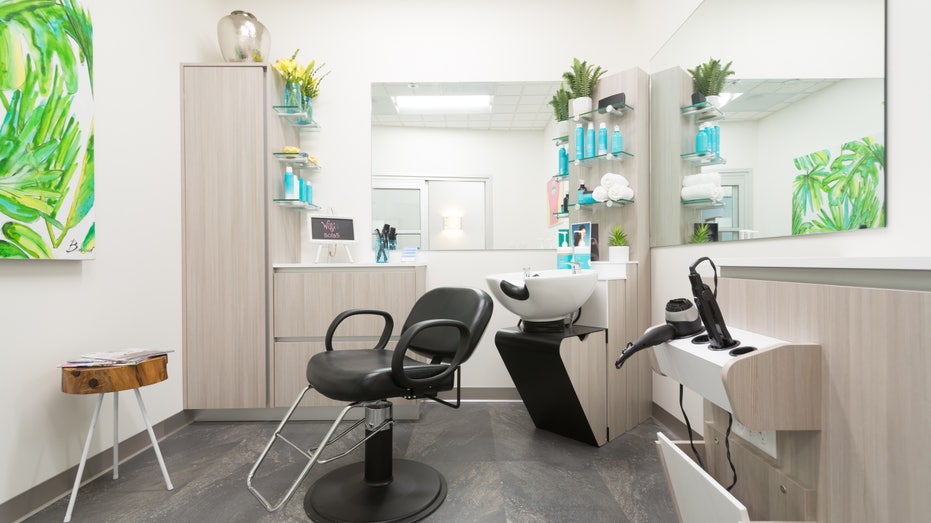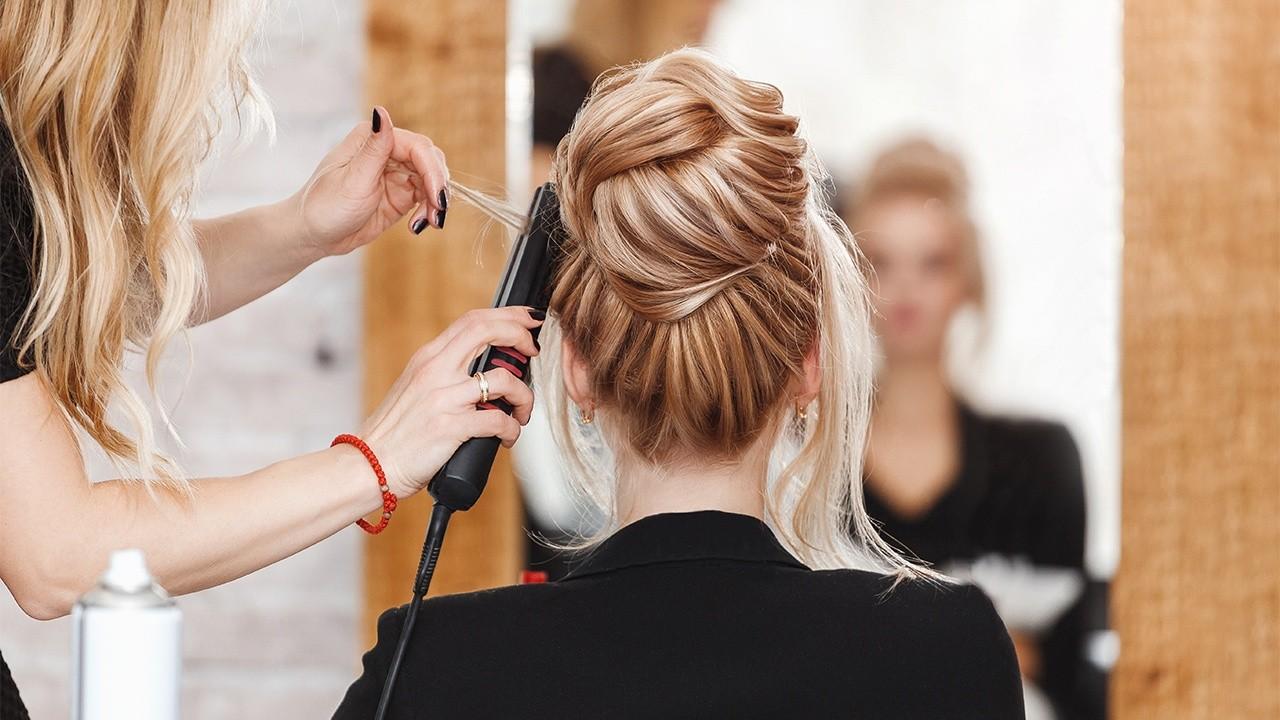Salons with alternative business models could be new norm in a post-pandemic world
Salon companies with suite-based business models are seeing an uptick in demand
The salon industry has been crippled by the novel coronavirus, which has caused the nation's economy to come to a near standstill, and the future remains bleak for businesses that are attempting to sustain viability and survive the effects of the pandemic.
However, salon companies with suite-based business models are seeing an uptick in demand for both stylists and services, providing a glimpse into what the beauty care industry could look like in the post-pandemic world.
HAIR SALONS, SPAS CRIPPLED IN CORONAVIRUS
“The beauty sector estimates that 25 to 30 percent of traditional salons may not survive this crisis,” Sola Salons CEO Christina Russell told FOX Business. “Salons traditionally are very small microbusinesses that are not set up to well to withstand a crisis like a recession, let alone a pandemic.”
Sola, a salon studios franchise company with 505 locations and 15,000 beauty professionals, leases spaces to independent stylists to work under their own business and licensing. Each salon is its own independent studio equipped with a sink, salon chair, and back bar, yet combined with the synergy and support network of like-minded stylists in the co-locations of the shared building space.

Interior of Sola Salon building space. Each suite is contained and controlled by each beauty stylist.
Most of the Sola spaces have remained closed since March under state-mandated orders, which has caused revenue to plunge. Even so, Russell said that the franchise is seeing a growing number of inquiries from hair professionals and beauty servicers who are seeking work.
"A lot of stylists are looking for new places to work now as they realize that traditional salons might not be able to handle the new world we are living in," North Carolina hair artist and senior stylist Maryam Avani told FOX Business. "When these stylists leave, they are also bringing their clientele over with them. People follow their stylists because they have a connection to them."
On the contrary, in traditional salon environments where employees are commission-based, the likelihood of survival is dependent on whether these large spaces can accommodate social distancing policies and sanitary standards.
Projected salon closures are sending work-deprived hairstylists into a frenzy as they seek alternative ways to carry on operations. Alternative salon models like Sola and Salon Lofts provide accommodations that might withstand the longevity of the virus-induced protocols.
TEXAS SALON OWNER FREED AFTER DEFYING GOVERNOR'S CORONAVIRUS ORDERS
“In our particular model, where these trained stylists are only treating one client at a time, and considering the fact that cleaning protocols and social distancing policies have gone into effect, there is a low-risk probability,” Salon Lofts CEO Steve Schillinger told FOX Business.
When the suite-based salon company led by Schillinger reopened its stores in Atlanta, the salons saw very strong demand for their space while the stylists met a surge of client service requests from customers. At its 144 locations nationwide, the salon company has encountered great interest from a broad array of beauty care and other personal service professionals looking to restart their businesses.
While traditional salons share work services, salon chairs, sinks, products and surfaces, a studio environment makes for a more promising replacement during the current business climate. Suite-based salons like Sola and Salon Lofts are made up of sectioned-off studios that can be completely contained. There is no sharing of equipment or space, and the cleanliness of each studio is controlled by beauty professionals. The unique layout and intentional design have provided a platform for these types of studios to meet the new health and safety standards.

Boutique salon studio layout in Sola Salons.
“There are no waiting rooms of large people or large servicing areas where you are in contact with dozens of people,” Schillinger said. “Stylists are trained and equipped to perform services in a manner that is very safe.”
KENTUCKY SALON SHUTTERED BY CORONAVIRUS GETS SECOND CHANCE WITH AVEDA RELIEF PROGRAM
Although the salon franchise like Sola has some benefits to its business model, it does not come without setbacks.
“Stylists who come to Sola Salons usually start with one chair and eventually open up three-chair or five-chair salons,” Russell said. “Now what you’re seeing is those three- or five-chair salons, primarily women-owned, are the ones that are hardest hit here because they may or may not have the support.”
Meanwhile, Avani said that she cannot imagine how the larger salons will be able to survive, considering that the typical layout consists of 10 or 12 beauty stations situated side by side.
“This is tragic,” Russell added. “This is a horrible thing to see happening. Frankly, many of the people who go independent at Sola do so because they have a dream of opening their own salon someday, and it’s sad to see that dream and entrepreneurial growth crushed.”




















